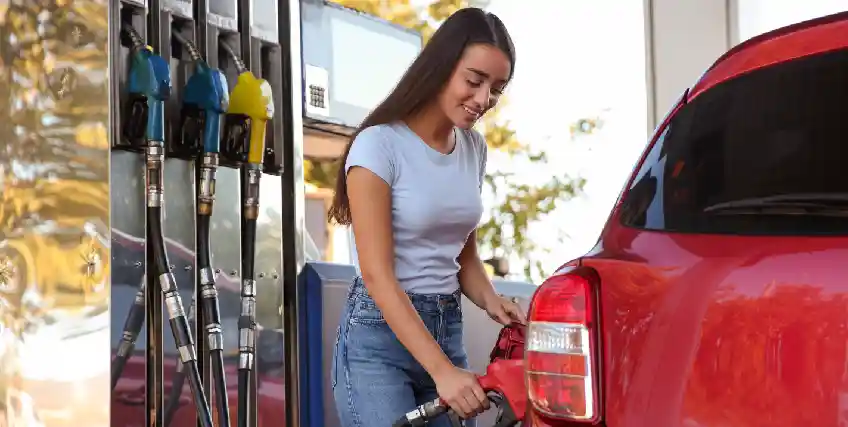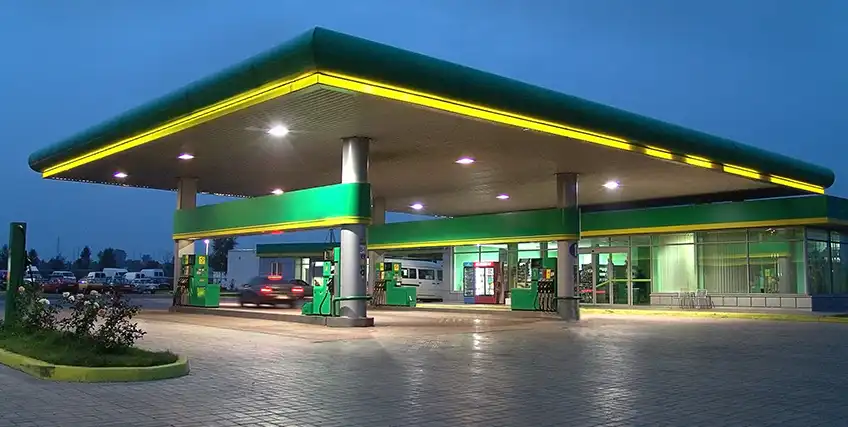Can First-Time Buyers Meet Gas Station Financing Requirements
August 12, 2025 | Last Updated on: August 12, 2025

Acquiring a gas station is a promising way for entrepreneurs to step into a lucrative, service-based gas station industry. However, understanding gas station financing requirements is crucial, especially for first-time buyers.
Navigating commercial gas station loans, investigating an SBA loan for gas station purchase, or structuring a loan to buy gas station property comes with distinct challenges and standards. This article breaks down all aspects of gas station acquisition financing to help new entrants unlock the door to ownership.
The Fundamentals of Gas Station Financing Requirements
Opening or purchasing a service station takes significant capital to cover real estate, fuel systems, building improvements, inventory, and licenses. The key to the operation is that the loan pays for its gas station financing as well. First-time buyers need to demonstrate they are prepared, financially well-endowed, and capable of surviving industry-specific risks.
Traditional gas station financing requirements are a combination of the following:
- Good personal and business credit
- Appropriate down payment (typically 10%–30%)
- Detailed business plan and financial projections
- Industry or management experience (optional, but sometimes waived)
- Documentation of sufficient collateral, typically real estate or personal assets
Many lenders consider financing a gas station riskier than regular businesses due to environmental hazards, the need for ongoing regulatory compliance, and unstable operating costs. Thus, minimum specs are not feasible for novices.
What Documents and Proof Do Lenders Require?
Assembling your documents correctly is essential for gas station financing requirements and gaining the lender's confidence. The typical package of paperwork would be:
- Personal and business tax returns (typically three years)
- Profit and loss statements
- Balance sheets
- Copies of business and personal bank statements
- Purchase agreements or contracts for the gas station
- Real estate appraisal or site survey
- Environmental site assessments (to reduce the risk of contamination)
- Business licenses and/or franchise agreements
- Well-written business plan and cash flow projections
For first-time buyers seeking an SBA loan for gas station purchases, more documentation like SBA forms (e.g., Form 912 Statement of Personal Credit History) is usually needed.
These detailed records show financial responsibility and preparedness for commercial gas station financing requirements.
Down Payment and Equity Injection: How Much Do You Need?
No matter what type of loan you are looking for, traditional commercial, SBA-backed, or seller financing, few (if any) lenders offer 100% financing. Most necessitate a big down payment. For gas station financing requirements, this out-of-pocket amount typically varies between 10% and 30% of the price paid, but as high as 35% depending on risk factors and lender policy.
The actual percentage depends on several factors:
- The chosen lender and loan product
- The creditworthiness of the buyer
- Appraised value of the real property
- Cash flow of the business that exists today
Asset-light buyers like SBA loans because they have lower down payments in comparison to conventional loans, typically calling for a payment closer to 10% to qualify.
Personal and Business Credit Standards
Creditworthiness is at or near the top of gas station financing requirements. Higher scores boost your chances of approval, reduce interest rates, and in some cases result in better terms.
Your personal and business financing credit profiles will both be taken into account if the entity is new.
If you lack a substantial business background, good personal credit, and the potential to demonstrate responsible handling of money, do a lot of good. Some alternative or non-bank lenders would be willing to accept lower scores, though they would charge higher rates or have shorter terms.
Industry Experience: Is It Mandatory?
While prior experience running a gas station or comparable business is highly desirable for gas station financing requirements.
For a new borrower, lenders will offset your absence of direct experience with a solid business plan, proof of comparable management experience, incorporation of experienced staff into your business team, or higher amounts of equity.
Franchise gas stations can offer more confidence to lenders based on established business models, recognized brands, and available support, facilitating first-time buyers to qualify for a loan for gas stations.
Collateral and Security Concerns
Gas station financing requirements are often secured by the property itself, along with business assets. However, due to the industry’s environmental risk profile, lenders may request additional collateral such as personal real estate or liquid assets as further security.
This requirement limits the risk for the lender in case of default or devaluation.
Be prepared for property inspections and environmental assessments. Hazardous material concerns are central: most institutions demand Phase I (and sometimes Phase II) Environmental Site Assessments before approving.
Clean reports expedite approval, while remediation requirements can block or delay the deal.
Gas Station Financing Options
SBA Loan
The U.S. Small Business Administration (SBA) offers versatile forms of commercial gas station loans for first-time buyers, such as:
- Lower down payment requirements
- Longer terms
- Competitive interest rates
- Financing for business assets and real estate
SBA support doesn’t mean easier approval; complete documentation and adherence to all gas station loan criteria are still necessary to meet the gas station financing requirements.
Conventional commercial gas station loans
Traditional banks and credit unions offer term loans for gas station purchase financing, but their risk aversion leads to:
- Higher credit score and down payment requirements
- Greater environmental and profitability scrutiny
- Bias in favor of experienced operators
Seller financing
Sometimes sellers will finance part of the sale. While it will reduce the up-front cash need, most seller financing proposals require at least a 10%–20% down payment and shorter repayment schedules.
How First-Time Buyers Can Succeed
If you’re a first-time buyer and want to succeed with a gas station financing requirements, the following are some of the ways through which you can achieve this:
Build an irrefutable business plan
A well-researched, forward-looking business plan is the cornerstone of a successful loan application. First-time buyers need to articulate clearly:
- Market and location analysis
- Revenue projections and financial modeling
- Operational plans and staff management
- Contingency for variations in cash flow
- Environmental and regulatory compliance plans
- Make your plan to sound financial projections to enhance your case further.
Improve your financial profile
Save sufficient funds to make the minimum down payment and closing costs. Pay down personal debt to improve credit and think about consulting financial counselors to put yourself in a better position before applying.
Gather all documents
Don't wait for the lender to request documentation. Prepare tax returns, financial statements, personal identification, business licenses, and a comprehensive business plan before applying to accelerate the process and avoid delayed timelines.
Seek specialized lenders
Visit lenders who deal in gas station financing. They will be more aware of industry specifics and offer tailored support to initial buyers to satisfy gas station financing requirements.
Negotiate where possible
Potential buyers sometimes combine commercial gas station financing requirements with a chunk of seller-financed capital or utilize alternative lenders/merchant cash advances as a source of working capital. These alternatives are less common but entail different risks and costs.
Common Pitfalls for First-Time Buyers
These are some of the common pitfalls that should be taken care of by the business owners while fulfilling the gas station financing requirements:
- Underestimating Environmental Issues: Unaddressed contamination can not only delay or block your loan to buy gas station real estate but also saddle you with significant cleanup expenses.
- Insufficient Working Capital: Many new owners overlook the need for extra funds beyond the purchase price, impacting renovation, restocking, or unexpected repairs.
- Failing to Understand Franchise Agreements: If buying a branded gas station, ensure you are aware of long-term obligations and product pricing controls that may affect profitability and loan serviceability.
Final Thoughts
While there are challenges, hardworking, prudent first-time buyers who are willing to make an effort to meet gas station financing requirements. The support of loan programs like the SBA loan to purchase a gas station and the growing number of commercial gas station loans that are currently available give beginners a valuable edge.
By emphasizing the creation of a solid financial foundation for both personal and business purposes, establishing thoughtful documentation, and negotiating with smart lenders, gas station acquisition financing is an available alternative, opening the doors to entrepreneurship in this dynamic field.
FAQs About Gas Station Financing Requirements
How to get a loan to open a gas station?
One of ideal methods of reaching your objective as a convenience store or gas station owner is to secure an SBA 7(a) loan from a bank, credit union, or other institution. The SBA 7(a) loan is available for any legitimate business purpose, including a business mortgage.
What do you need to qualify for financing?
Gas station financing requirements are identification evidence, for example, an ID from the government. Proof of address, for example, a utility bill or a mortgage statement. Proof of income and employment, for example, a pay stub, tax return, or W-2.
How much is a down payment for a gas station?
A down payment for a loan for a gas station can vary widely.
How do I get a loan to buy a gas station?
An SBA loan is a Small Business Administration-guaranteed loan that helps small businesses, including gas stations and c-stores, get the financing they need. The benefits of SBA loans for gas stations and c-stores include lower down payments, longer repayment terms.
How low is too low for a down payment?
You may be able to qualify for a conventional mortgage with 3% down, but with less than 20% you'll have to pay mortgage insurance. Making a larger down payment can qualify you for a lower interest rate.
Frequent searches leading to this page
Term Loans are made by Itria Ventures LLC or Cross River Bank, Member FDIC. This is not a deposit product. California residents: Itria Ventures LLC is licensed by the Department of Financial Protection and Innovation. Loans are made or arranged pursuant to California Financing Law License # 60DBO-35839




